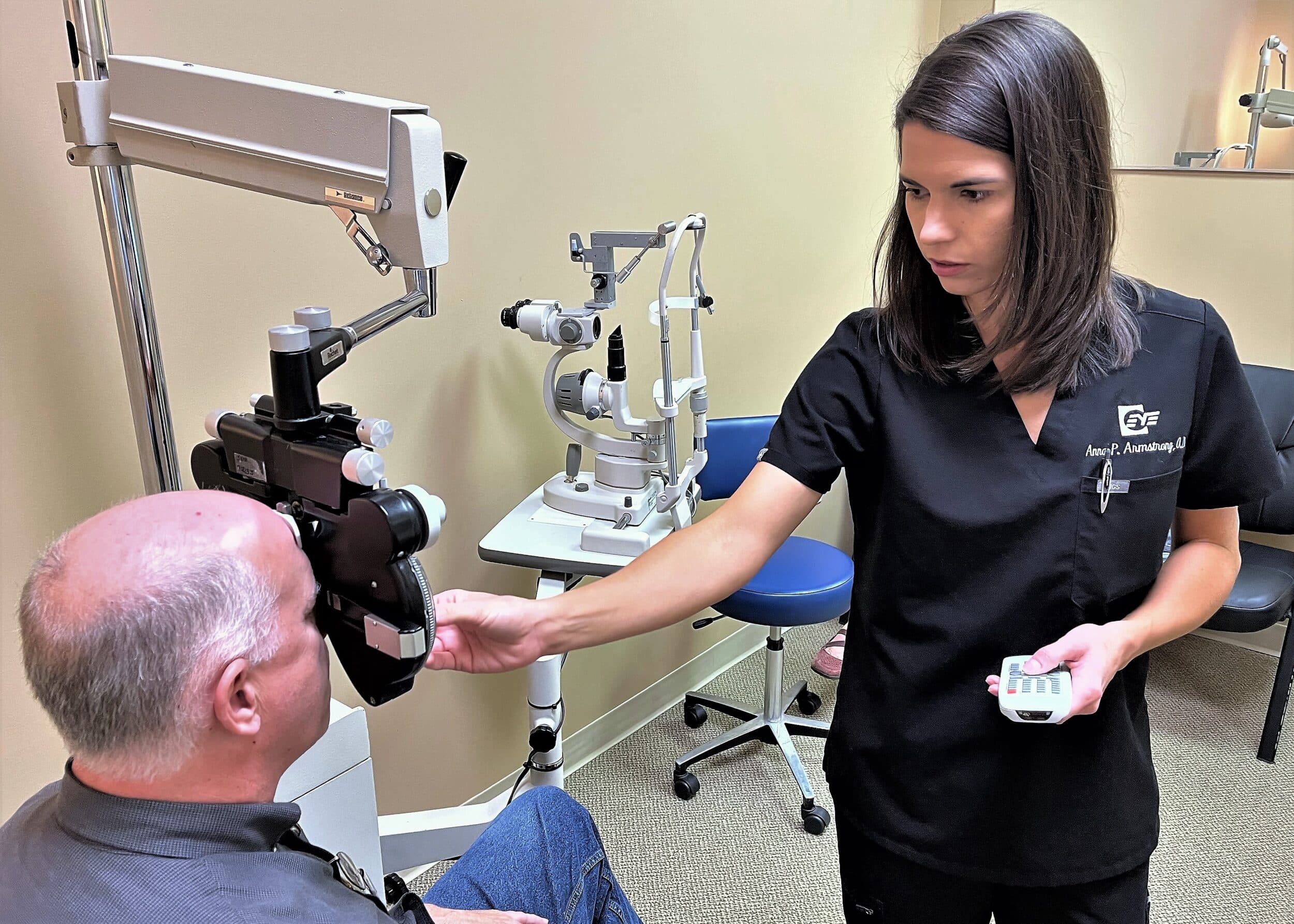How to Protect Your Eyes This Summer From Harmful UV Rays
Spending time in the great outdoors does a body good-a little communing with nature can reduce stress and re-energize your life. Bathing in the sunshine also gives you a dose of Vitamin D, and a boost to your immune system.
But you can get too much of a good thing, particularly staying too long in the sun. Old Sol emits a constant flow of ultraviolet (UV) rays that could damage your body with prolonged exposure-especially your eyes. That’s why vision providers across the country put the focus on the dangers to eye health from sun exposure during July’s UV Safety Month.
“We all know how important it is to protect the skin when spending time in the sun. But we should also take steps to protect our eyes as well,” says Dr. Anna Armstrong, a therapeutic certified optometrist with Hattiesburg Eye Clinic.
So, what can happen if your eyes take in too much of the sun’s UV rays? Plenty, says Dr. Armstrong, ranging from minor eye irritations and dryness (akin to a moderate skin burn) to an increased risk for eye diseases like cataracts or macular degeneration.
“Extended UV exposure can cause eye injuries in the short term, but we’re most concerned about the long-term effects,” says Dr. Armstrong. “Cataracts are a good example: Although most people have some degree of cataract growth by age 65, those who’ve spent a lot of time in the sun can experience earlier and more rapid cataract growth than those who haven’t.”
People who work (or play) extensively outdoors are also more apt to develop growths on their corneal surfaces called pterygium. Sometimes called “surfer’s eye” or “farmer’s eye,” pterygium growths can be irritating and unsightly, and can sometimes interfere with vision.
“We see a fair amount of pterygium among people who work outdoors. We can usually manage it with mild steroid drops and artificial tears to keep the eyes well-lubricated. It’s possible to surgically remove it if it grows too large, but there’s also a risk that it will grow back.” says Dr. Armstrong.
Given the risks from UV rays, people have two choices: go “vampire” (never go out in the sun); or take steps to minimize the effects of the sun’s rays.
If like most people you sensibly choose the latter, it’s pretty simple: cover your eyes and limit your time in the sun, if possible.
Your main eye “covering,” of course, is a good pair of sunglasses. Both adults and children should wear sunglasses out in the sun, especially when on the water, sandy beaches, or even snow, all surfaces that can reflect and intensify the sun’s rays. And if you’re in the sun a lot, it’s best to wear sunglasses that extend beyond the sides of your eyes (“wraparounds”).
Dr. Armstrong also says you don’t have to spend a fortune on sunglasses to gain effective protection. “Actually, there are a number of inexpensive brands that provide adequate protection. You mainly want to look for labeling that says the product offers protection from both UVA and UVB rays.”
You also want to provide shade to your face and eyes in the form of a hat. “A wide-brimmed hat not only provides protection for your skin, it also further reduces the amount of UV rays that eventually reach your eyes,” says Dr. Armstrong.
The other element of a good UV ray protection strategy is to limit both the duration of your sun exposure, as well as the time of day when you’re out. “If possible, plan your time in the sun for mornings or late afternoons, rather than in the middle of the day when the sun’s rays are at their most intense,” says Dr. Armstrong.
Wearing eye protection and clothing, and moderate time in the sun, can limit the UV rays that come in contact with your eyes. That in turn can help you reduce your chances for numerous eye ailments, now and in the future.
To learn more about protecting your eye health, be sure to visit our website. To find out how Hattiesburg Eye Clinic can improve your vision health, call 601-268-5910 (or toll-free 800-624-8254) or schedule a consultation with us at www.hattiesburgeyeclinic.com/contact-us/


